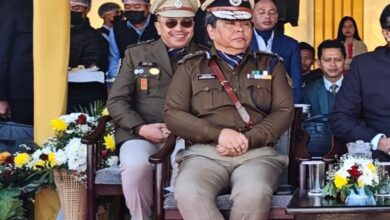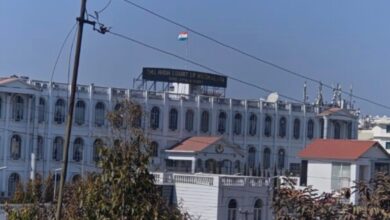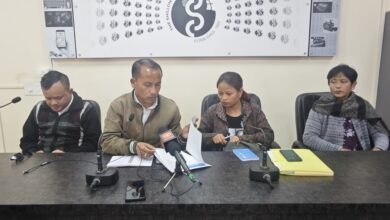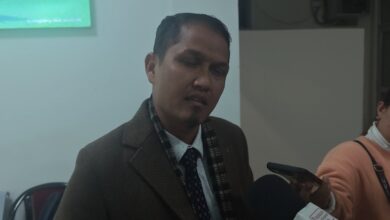Save education panel releases people’s education policy
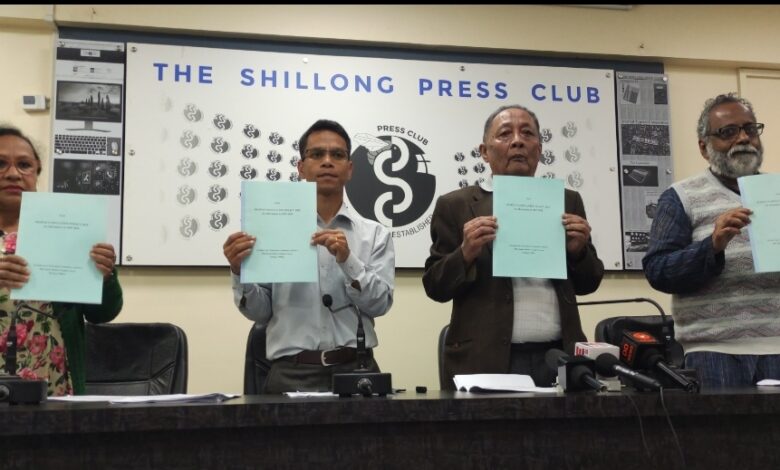
Shillong, May 22: The All India Save Education Committee on Thursday launched draft people’s education policy 2025, alternative to NEP.
The members of the committee opened Meghalaya chapter.
Addressing a press conference in the city,the members of the committee said the NEP was not brought before the Parliament for discussion .
They also deplored communalisation of education.
Text of the All India Save Education Committee
“The present central government which also was in power in 2020 adopted the National Education Policy 2020 at a very critical time when the country was under a complete shutdown due to the global COVID-19 pandemic, through a cabinet decision, without placing it on the floor of the parliament for meaningful debate and discussion. Although education is under the Concurrent List, the state governments were never consulted while framing the policy. The central government sought feedback from the citizens, but it hardly noted the concerns of the stakeholders. Without paying any heed to the leading intellectuals, educationists, students and other stakeholders, the central government has been forcibly imposing the policy on the states, the action that the Supreme Court recently disapproved. The All India Save Education Committee (AISEC) being of the firm opinion that it will destroy the entire education system in India has been at the forefront of the struggle against the NEP 2020. Today, AISEC has brought out the Draft People’s Education Policy (PEP 2025) as an alternative to NEP 2020 and it is being released simultaneously in almost all the state capitals as well as in the national capital, New Delhi. Today, the 22nd May happens to be the birth anniversary of Raja Rammohan Roy who pioneered the Indian Renaissance Movement and paved the way for modern education in India.
AISEC is placing the Draft People’s Education Policy for nation-wide discussions and deliberations. Unlike the NEP 2020 which was imposed from above, AISEC believes in finalization of the Alternative Education Policy by taking the draft of the PEP 2025 to different sections of the people and taking inputs from them to improve the draft further. AISEC proposes that after incorporating the inputs thus received a final policy document “People’s Education Policy – An Alternative to the NEP 2020” will be prepared. The central government didn’t place it in the parliament but the AISEC will place it before a National People’s Parliament to be called for the purpose in January 2026 in Bengaluru. Once the final Alternative People’s Education Policy is ready, AISEC proposes to submit the People’s Education Policy to the central and state governments and demand its implementation within a stipulated time-frame.
Synopsis of the Draft PEP 2025 vis-à-vis NEP 2020
1) PEP proposes secular, scientific, democratic and universal education- the features which are absent in the NEP 2020.
2) PEP proposes at least 10% of the central budget and 20-25% of the state budget for education when consequent on introduction of NEP 2020 government’s allocation of fund dwindles and touches an all-time low. The government should take total financial responsibility for education.
3) PEP proposes education to be a subject of the State List and the Indian Constitution shall be re-amended accordingly, the issue on which the NEP is silent.
4) PEP demands of the government to ensure that there are educational institutions even in remote and inaccessible areas like the mountainous regions, forest areas, deserts, border areas and other sparsely populated areas.
5) PEP demands rejection of the RTE ACT 2009 and ensuring Free Education for all within the age group of 3 to 17 years.
6) PEP is in favour of continuing the time tested 10+2 structure with 2-year non-compulsory pre-primary education and opposes lop-sided 5+3+3+4 pattern introduced by the NEP 2020.
7) PEP recommends continuation of 3-year UG program. It is against 4-year degree (FYUP), Entry and Exit options, and the Cafeteria system of selection of courses based on unscientific multi-disciplinary approach of the NEP.
8) PEP is in favour of 2-year PG program against the 1-year PG formulated by the NEP.
9) PEP proposes to introduce Annual mode as far as possible against the present semester mode of examination.
10) PEP is in favour of restoration of MPhil as an option against its abolition as implemented by NEP.
11) PEP likes unhindered autonomy of educational institutions and academic freedom of teachers against central and bureaucratic control, fake autonomy, graded autonomy and political intervention as imposed by the NEP.
12) PEP wants to see the Teacher as a parent, a guide, and a mentor as against ‘facilitator’ termed by the NEΡ.
13) PEP wants to ensure the continuation of the time-tested formal class room teaching-learning process as against the online and hybrid mode of teaching introduced by the ΝΕΡ.
14) PEP recommends the process of admission of students to be decided by universities and opposes the centralized national level entrance tests such as CUET and NEET.
15) PEP recommends to promote mother tongues and English language and to develop the language policy scientifically.
16) PEP is in favour of appointment of permanent teachers at all levels against guest and contractual teachers as proposed by the NEP.
17) PEP opposes introduction of IKS (Indian Knowledge System) in the name of ancient Indian culture and heritage which infact, is a design to distort history and inculcate pseudo-science.
18) PEP wants to see that the area of research is not dictated by the funding agency or thee government”.


